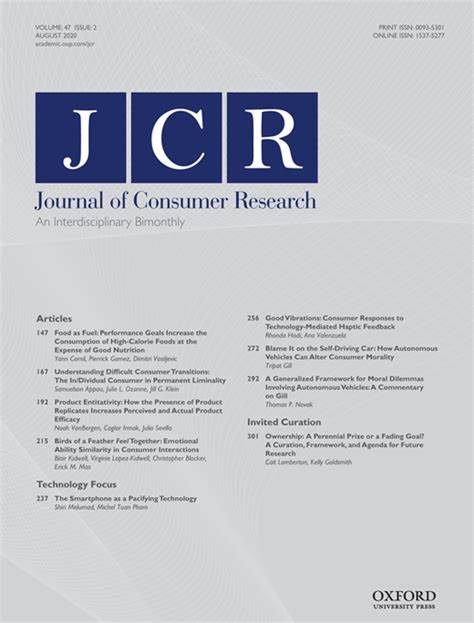没有产品的身份:当对自我关联产品的偏好减弱时
IF 5.7
1区 管理学
Q1 BUSINESS
引用次数: 0
摘要
现有的文献和常见的营销实践都认为,加强与品牌及其产品的自我链接会提高品牌忠诚度。在本文中,我们挑战了这一传统观念,揭示了在自我链接保持不变的情况下,消费者对自我链接品牌的偏好会降低的情况。我们根据身份表达是否依赖于特定产品,对两类消费者身份进行了关键区分:依赖于产品的身份(如厨师)和不依赖于产品的身份(如美食家)。我们的理论认为,当独立于产品的身份突出时,与产品的自我链接对偏好的影响较小。通过对消费者休闲身份的五项研究,我们发现,与产品无关的身份(与产品相关的身份)会降低消费者对自我链接产品/品牌的偏好。有趣的是,它还能提高物质主义消费者对负面自我关联(分离)产品/品牌的偏好。在第六项实验和一项真实的 Facebook 研究中,我们说明了消费者身份长期独立于产品的程度可以直接或间接地从社交媒体兴趣中进行评估,从而更有效地定位品牌转换诉求。除了有关产品在身份表达中的象征性作用的文献之外,我们的研究还独特地探讨了产品在身份表达中的功能性作用及其对产品/品牌偏好的深远影响。本文章由计算机程序翻译,如有差异,请以英文原文为准。
Identities without Products: When the Preference for Self-Linked Products Weakens
Extant literature and common marketing practices converge around the idea that stronger self-links to a brand and its products lead to increased brand loyalty. In this paper, we challenge this conventional notion by revealing situations where the preference for self-linked brands diminishes, despite the self-links remaining unchanged. We introduce a key distinction between two types of consumer identities based on whether identity expression relies on specific products: product-dependent (e.g., chef) and product-independent (e.g., foodie). Our theory posits that self-links to products exert less influence on preference when a product-independent identity is prominent. Across five studies examining consumer leisure identities, we find that priming a product-independent (vs. product-dependent) identity reduces preference for self-linked products/brands. Interestingly, it can also enhance preference for negatively self-linked (dissociative) products/brands among materialistic consumers. In a sixth experiment and a real-world Facebook study, we illustrate that the extent to which consumers’ identity is chronically product-independent can be assessed either directly or indirectly from social media interests, allowing for more effective targeting of brand-switching appeals. Adding to the literature on the symbolic role of products in identity expression, our research uniquely investigates the functional role of products in identity expression and its profound impact on product/brand preference.
求助全文
通过发布文献求助,成功后即可免费获取论文全文。
去求助
来源期刊

Journal of Consumer Research
BUSINESS-
CiteScore
12.00
自引率
9.70%
发文量
53
期刊介绍:
Journal of Consumer Research, established in 1974, is a reputable journal that publishes high-quality empirical, theoretical, and methodological papers on a wide range of consumer research topics. The primary objective of JCR is to contribute to the advancement of understanding consumer behavior and the practice of consumer research.
To be considered for publication in JCR, a paper must make a significant contribution to the existing body of knowledge in consumer research. It should aim to build upon, deepen, or challenge previous studies in the field of consumption, while providing both conceptual and empirical evidence to support its findings.
JCR prioritizes multidisciplinary perspectives, encouraging contributions from various disciplines, methodological approaches, theoretical frameworks, and substantive problem areas. The journal aims to cater to a diverse readership base by welcoming articles derived from different orientations and paradigms.
Overall, JCR is a valuable platform for scholars and researchers to share their work and contribute to the advancement of consumer research.
 求助内容:
求助内容: 应助结果提醒方式:
应助结果提醒方式:


